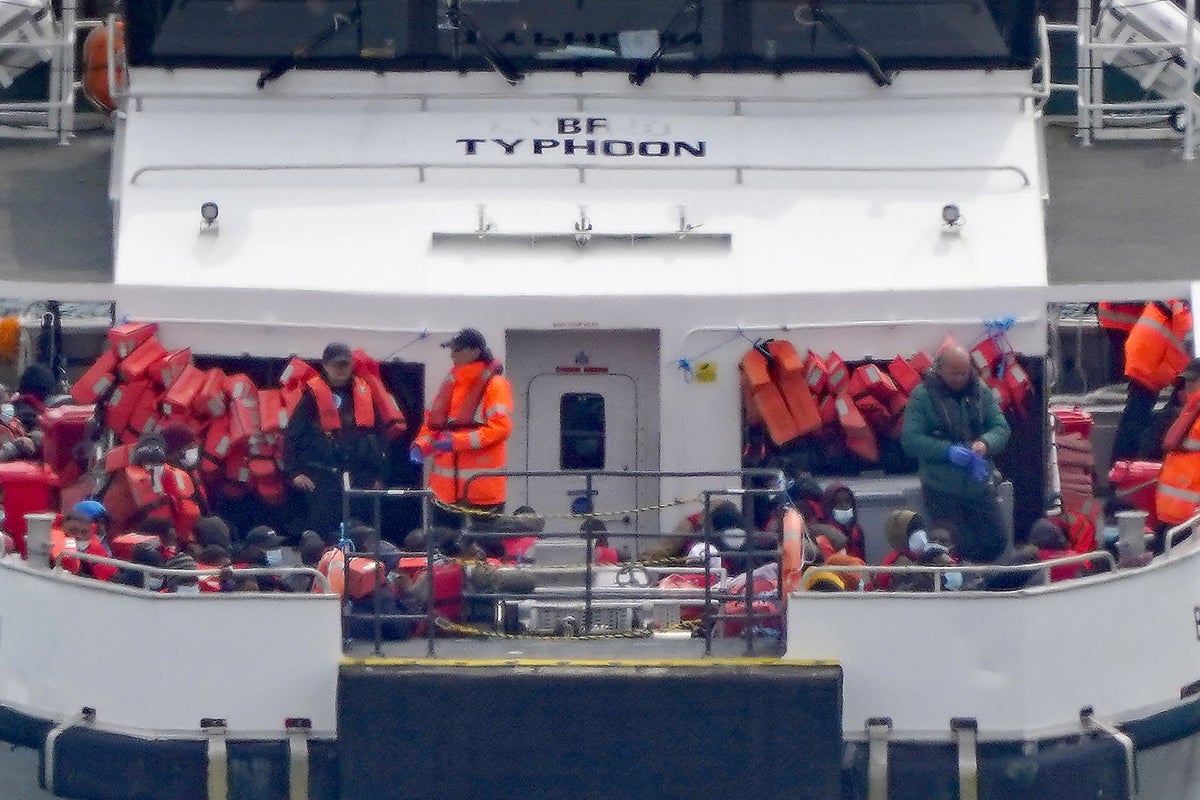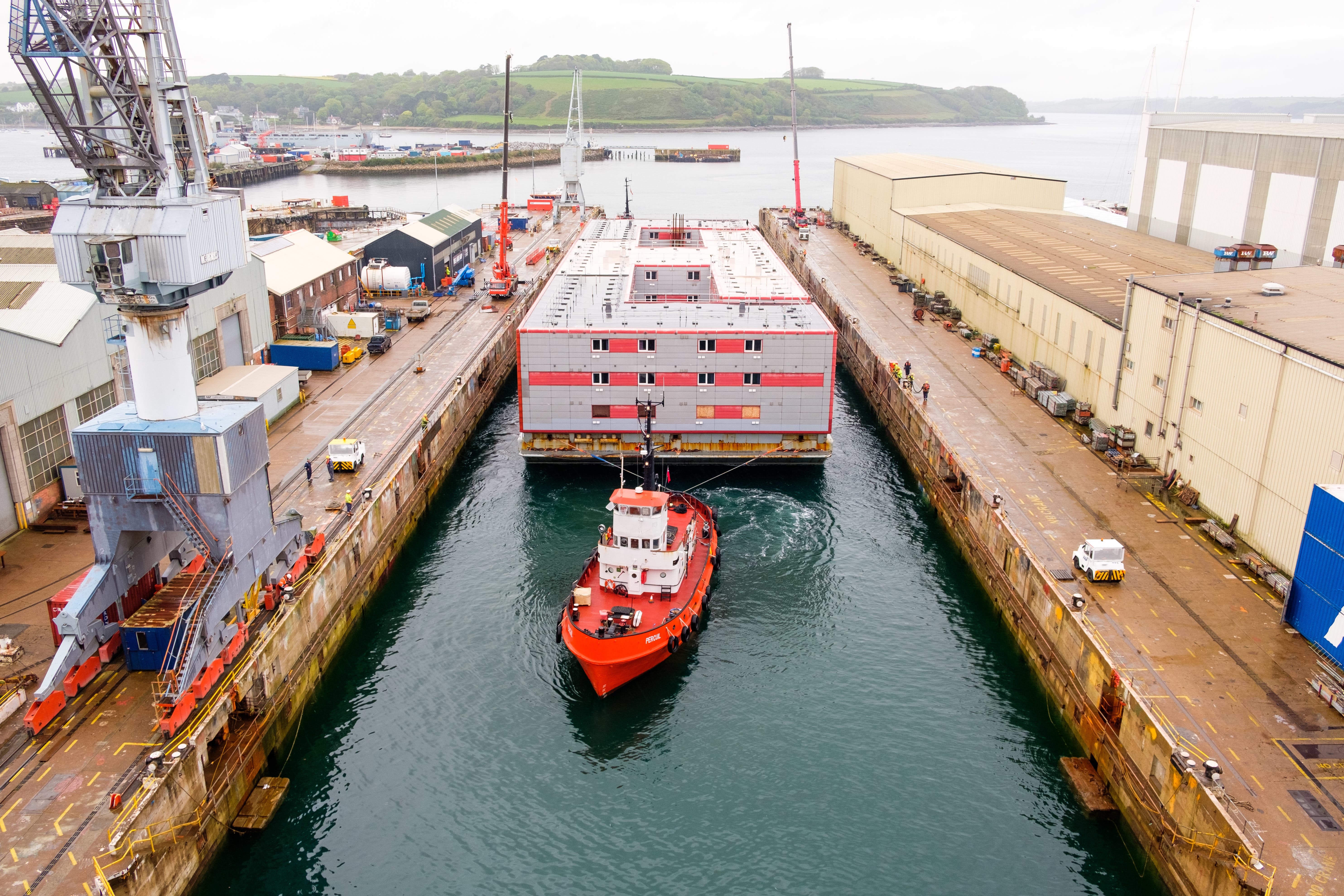
A 20 per cent year-on-year drop in Channel crossings hailed by Rishi Sunak as proof his policies were “working” has halved in a fortnight.
On 5 June, the prime minister made a speech in Dover claiming: “Our approach is working. For the first time, crossings are down by 20 per cent.”
But Border Force sources told The Independent crossings had been suppressed by weeks of rough seas in the Channel, and experts said much of the reduction had resulted from a drop in Albanian migrants rather than an overall change.
Numbers swiftly rocketed following the arrival of calm weather and more than 2,800 people have arrived on dinghies since 10 June.
The total number since the start of this year now stands at 10,472, compared to around 11,600 at the point of 2022.
It means the year-on-year fall celebrated by the prime minister has been slashed to 9 per cent, and is likely to continue falling while the sea conditions remain favourable for crossings.
Yvette Cooper, Labour’s shadow home secretary, said: “These figures show the dismal failure of all the prime minister's boasts of progress on small boats, and follow a week of damning official reports on the surging backlog, spiralling hotel costs and failing border security.
“Rishi Sunak’s small boats plan is disintegrating before the public’s eyes, and he has no idea of how to turn it around.”
Afghans are now the most common nationality arriving in small boats, following the collapse in the number of refugees resettled directly from the country.
During his speech two weeks ago, Mr Sunak admitted that the issue “won’t be solved overnight, and people will continue to come this summer”.
In the same address, he announced the procurement of two further barges to house asylum seekers and said: “The first will arrive in Portland in the next fortnight.”
But The Independent understands the Bibby Stockholm is still undergoing refitting and checks in Falmouth, and will not make the journey to Dorset for weeks.
It may have to undergo further checks after arriving in Portland, meaning the first asylum seekers cannot be housed there until late July at the earliest.
The prime minister’s pledge to clear a backlog of “legacy” asylum decisions by the end of this year is also on course to fail, according to a watchdog report released last week.
Mr Sunak is backing the new Illegal Migration Bill, which aims to allow the government to detain and deport all small boat migrants without considering asylum or modern slavery claims, as a means of “stopping the boats”.

But experts have questioned ministers’ continued adherence to the idea of “deterrence”, which has underpinned several years of increasingly punitive laws as numbers have continued to rise, and called for them instead to reduce demand for Channel crossings with alternative safe and legal routes.
An inquiry by the cross-party Joint Committee on Human Rights found the bill could lead to asylum seekers taking “more dangerous routes” to the UK, benefit people smugglers and worsen trafficking.
Its report said the government had not provided any evidence backing claims the bill would deter Channel crossings, and that many of its provisions were unlawful.
Last week, Home Office representatives told the Court of Appeal it was still “working on estimates of up to another 56,000 people arriving on small boats this year”, which would be a new record and a rise of over a fifth on 2022.







